What is an Antique Commode? November 2, 2021 – Posted in: Furniture, Home Improvement – Tags: antique, commode, stool
Often misidentified and confused for something else, the antique commode is both widely sought after and widely misunderstood. How can that be?
First and foremost, the commode has a variable definition. It is the proper term for the antecedent of the nightstand (in other words, a piece of furniture containing a concealed chamber pot). But it is also the proper name for a decorative chest of drawers.
In this post, we want to explore the antique commode and its significant role in European interior decoration, starting in the 18th century. The commode, as the word would suggest, originated in France.
Introducing the Antique Commode
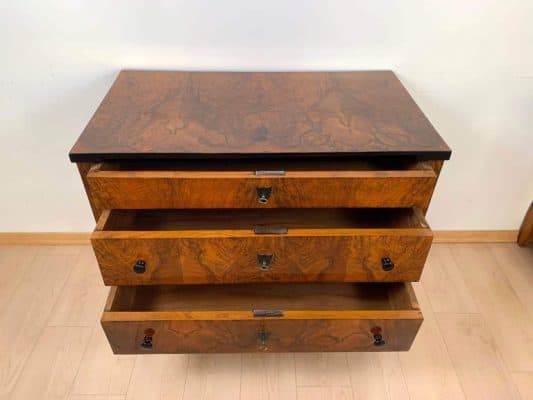
The commode originated in the Baroque era in France, during the reign of Louis XV. Meant to stand flush against a wall, it was designed with storage in mind, but with the kind of decorative flourishes that made it a fit addition to royal quarters or hallways.
That functionality has remained at the heart of the commode, unlike some other pieces of decorative furniture. That functionality may explain why it spread all across Europe so quickly.
From Germany to Scandinavia to Eastern Europe, the commode spread quickly, especially during the years of the Napoleonic conquests. It’s combination of form and function made it a hit wherever it appeared.
The Victorian commode (chest of drawers) also took inspiration from the French court. Indeed, much of British culture in the early 19th century was dedicated to inspiring a re-imagining of aesthetic befitting a global Empire. That aesthetic took heavy inspiration from the toppled French court of the 18th century.
Throughout the 19th century, all across the continent, commodes were in steady production for a whole new range of people than they had originally been intended for. With a burgeoning middle class came a taste for functional, beautiful furniture to furnish smaller homes.
Nor did commodes lose relevance at the end of the 19th century. Well into the early 20th century, they remained sought-after pieces of functional furniture.
The Antique Commode
To give you a sense of the wide variety of commodes available we’ve pulled some of our favorite examples originating all over Europe. From 18th century Baroque finds to mid-19th century decorative splendors, there are heaps of treasures to explore.
French Commodes
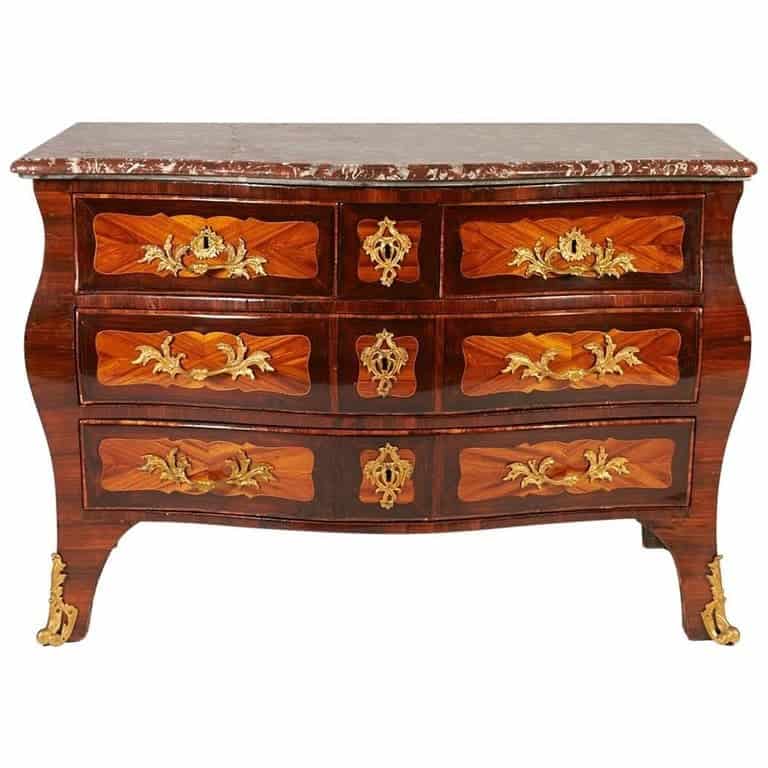
We begin with an exemplar from the time when the commode was first designed. This Louis XV Style Commode from France was built in 1740 and is a “bombe commode”. The “bombe” shape literally describes the voluptuous center portion as bomb-shaped.
This particular marble-top commode is a stunningly elegant slice of life from the Baroque era. There is nothing quite as elegant as a pink French marble top. With voluptuous, rich wood and gilded bronze fittings, it’s a piece made for a royal court – and now your living room.
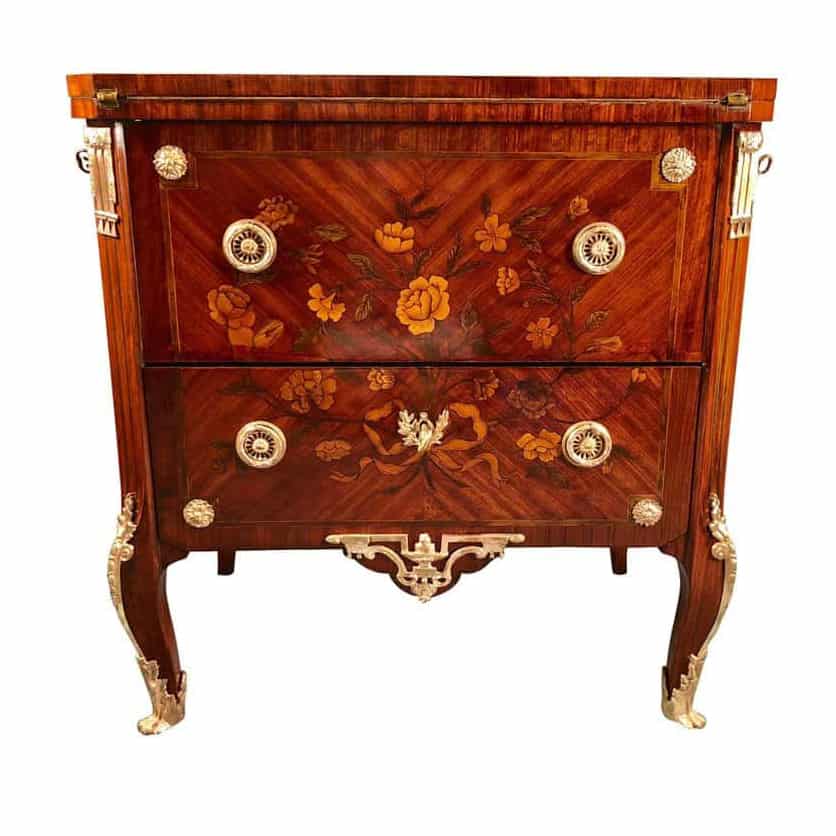
A later, smaller piece example, this French Commode in the Transition Style features marvelous decorations. This marquetry commode embodies the 19th century French style in surprising ways. It’s a transition piece, certainly, because of classic Baroque features like gilded cabriole legs, in combination with much less curvature on the beautifully decorated body.
The marquetry is especially worth noting, featuring beautifully designed florals all across the front of the piece. Inside, a hidden secretary pops out with the foldable writing surface. It’s a wonderful little secret. Indeed, the piece is imbued with a certain magic that only an original could muster.
French artisans inspired craftsmen around Europe. Take a look at some of the next examples. Originating from all over Europe, they showcase how far and wide the commode was able to spread and evolve.
Commodes from All Across Europe
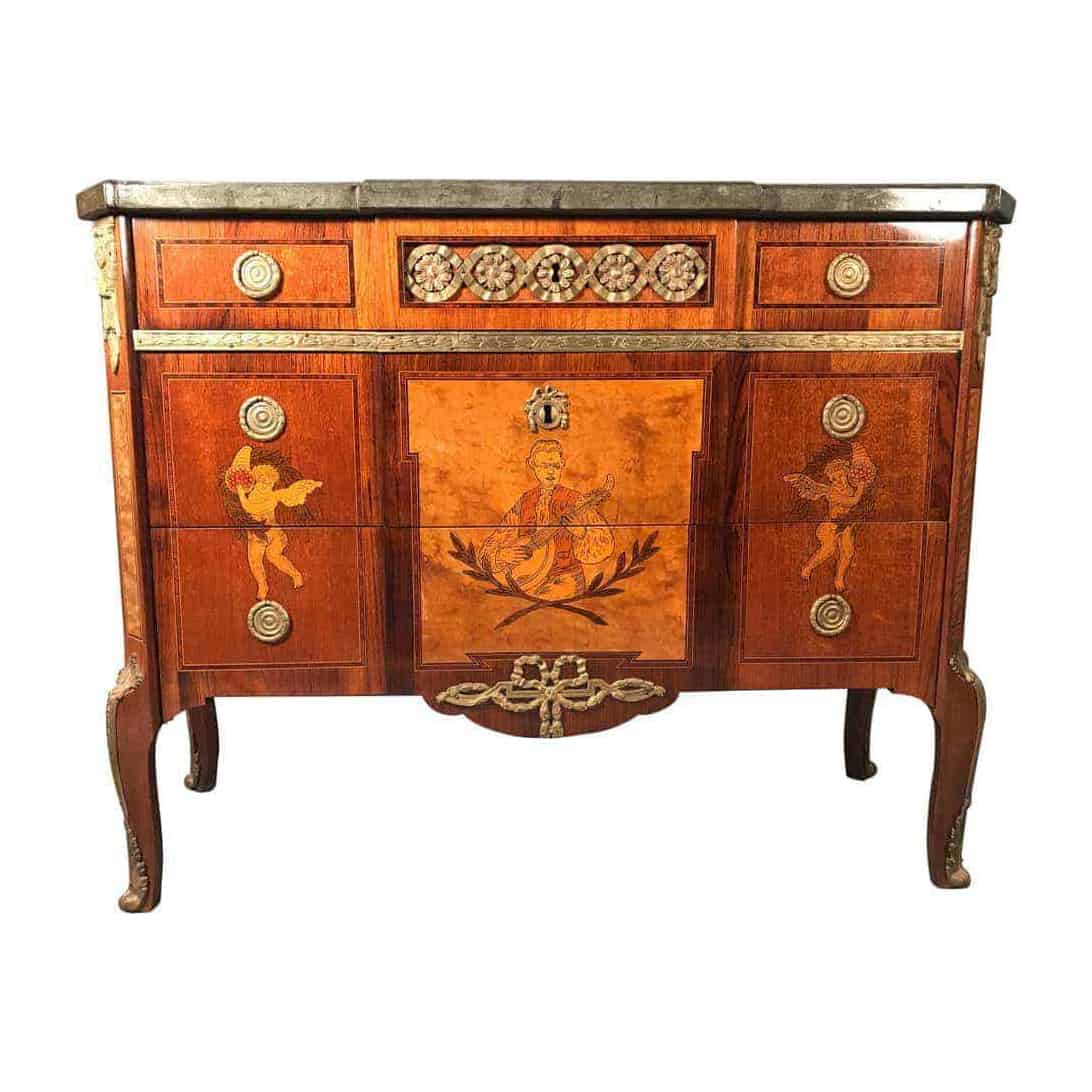
This Gustavian Commode from 19th century Sweden is a rare find. With incredibly detailed human figures in the marquetry and a smoke-green marble top, it embodies qualities of Scandinavian Neoclassicism that speak to an absolute intellectual refinement. Though restored, as any antique, all parts of this piece are completely original.
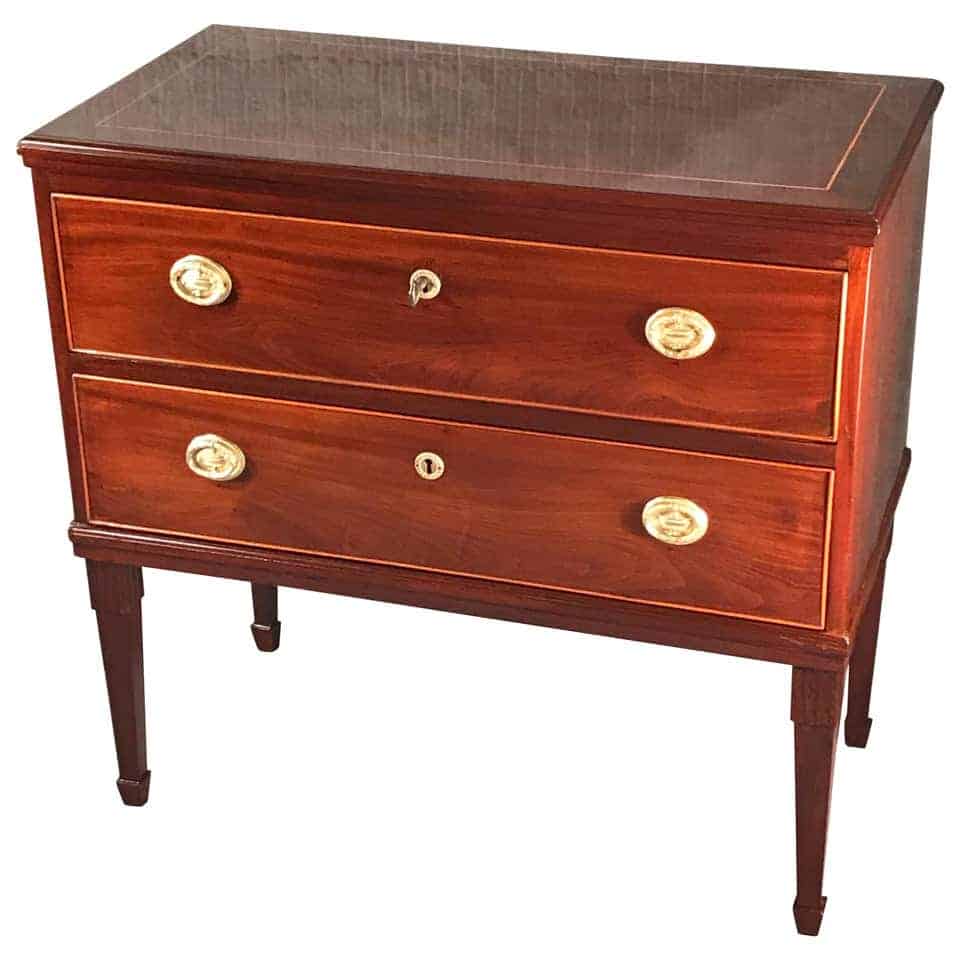
This Neoclassical Commode from Northern Germany features a gorgeous mahogany veneer. Neoclassicism and a mahogany commode go hand in hand. That is primarily because of the formal, imposing elegance a darker wood, like mahogany, provides to a piece of furniture.
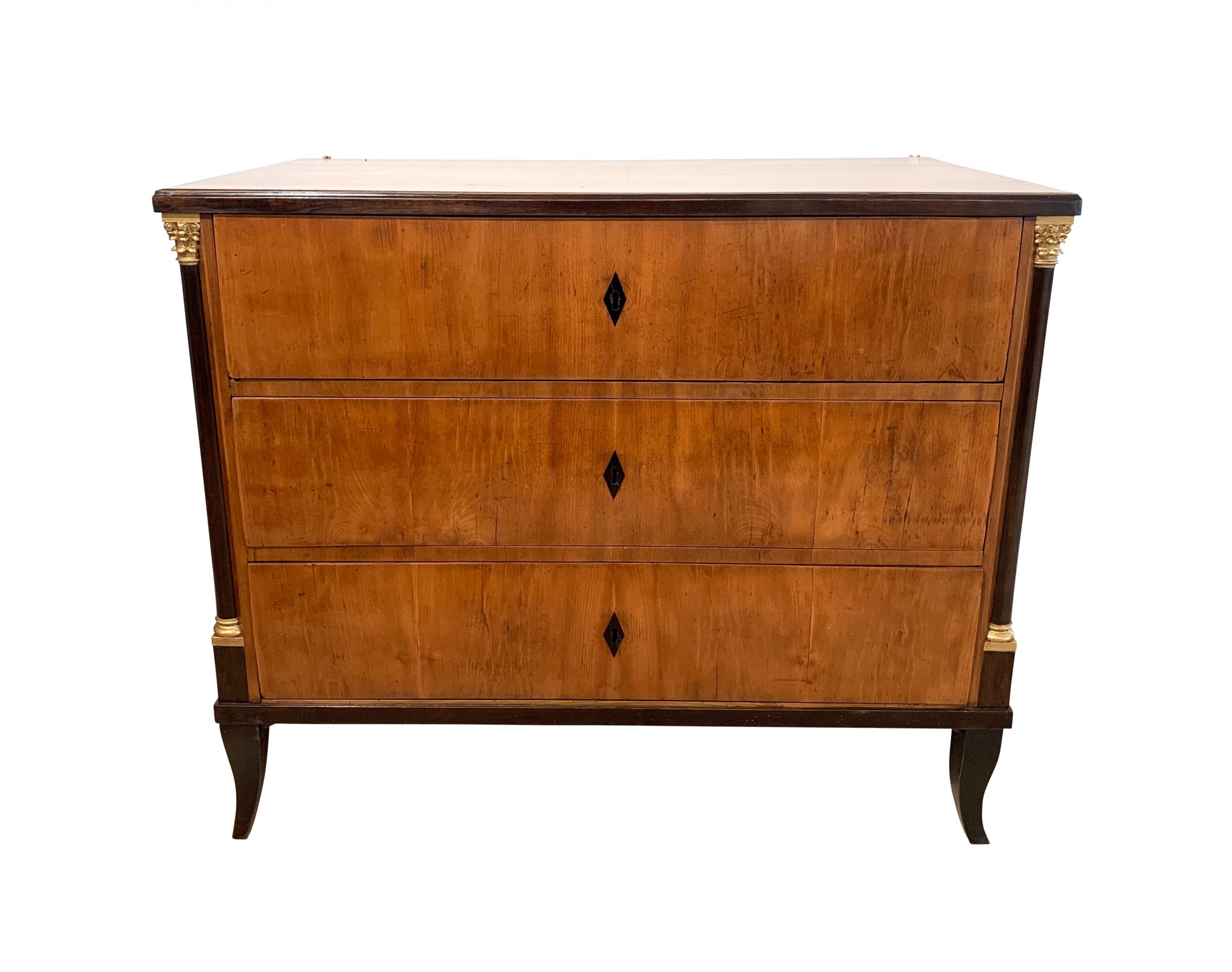
This Biedermeier Commode from Southern Germany, on the other hand, is a recognizable exemplar of its time by virtue of its light cherry wood veneer. Like in some the other Biedermeier pieces in our store, an unexpected air of wealth exudes from the ebonized features on either side of the drawers. Two columns with gold Corinthian capitals, recall Neoclassical motifs with elegance and charm.
These three particular examples demonstrate what kind of richly varied pieces the French commode inspired throughout Europe in the decades and centuries after the Baroque era. As such a widely spread furniture style, the commode tells the story of an interchange of ideas and cultures.
A Timeless Classic
When it comes to antique furniture, few items are as popular as the commode. As a European antique, the commode is the standard-bearer for the importance of French culture at the turn of the 19th century. And now you can bring one into your home.
We’ve introduced you to a whole array of gorgeous furniture, any of which would make a breathtaking addition to a modern home, why not check out our Bone Inlay Stool as a complementary addition to your interior decor.

